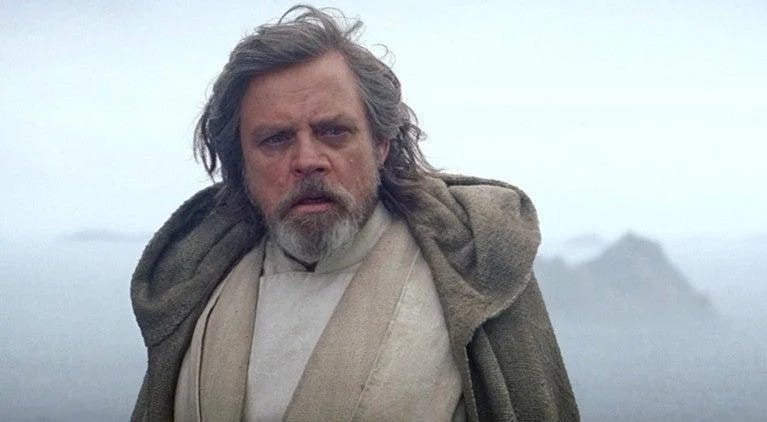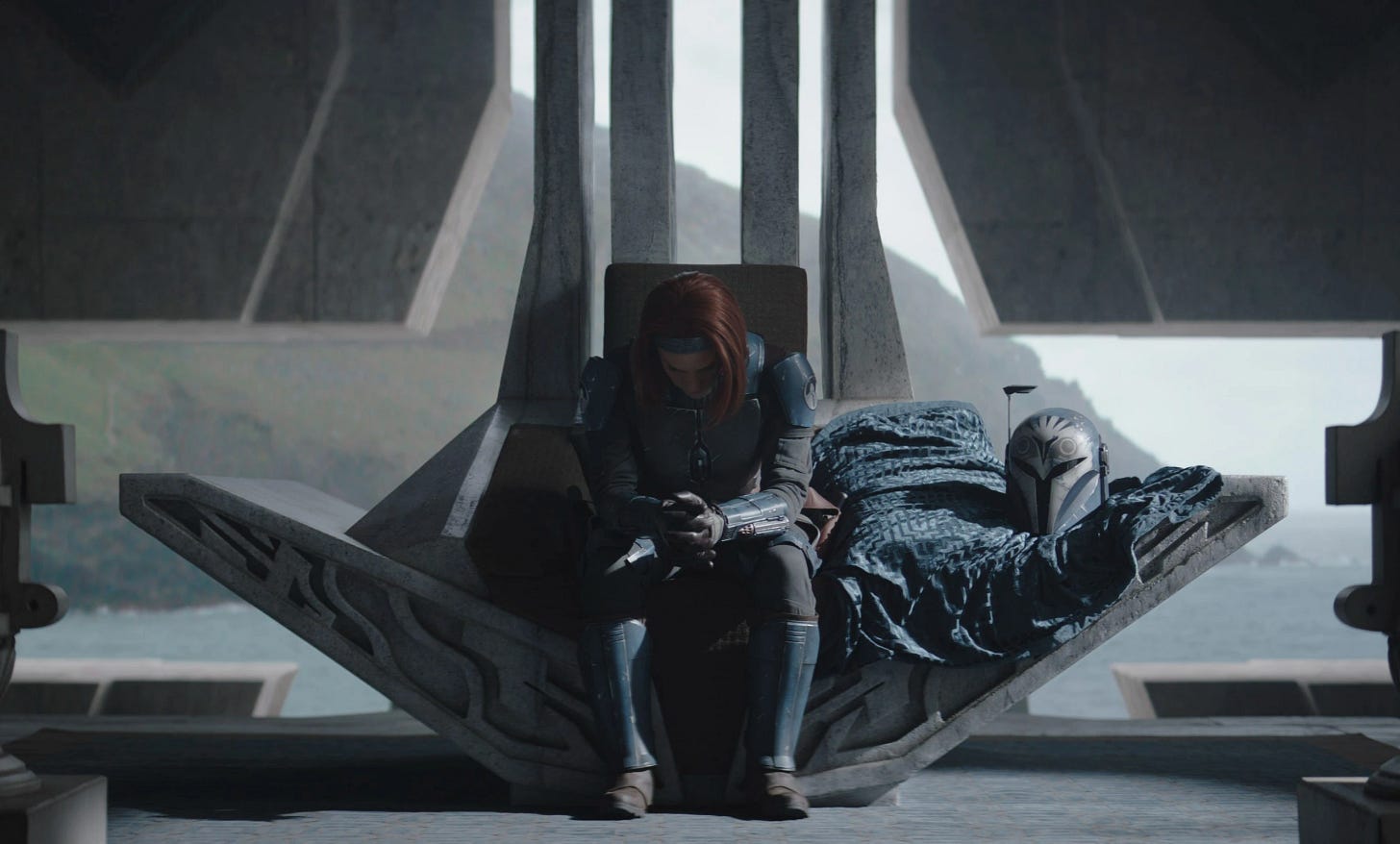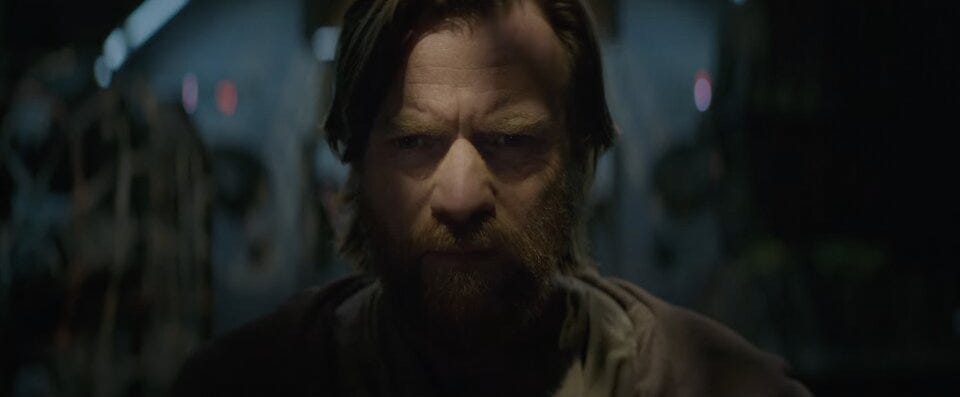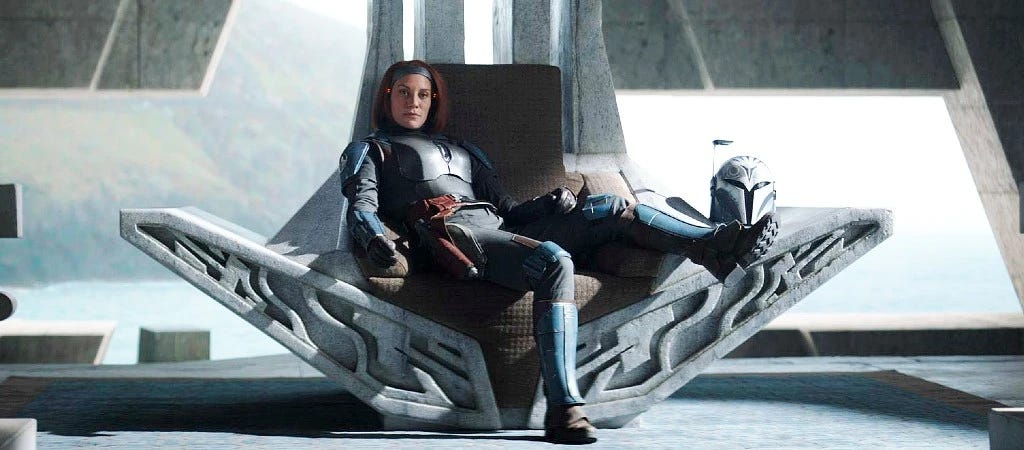Bo-Katan, Obi-Wan & the work of a human being
Lessons on rejoining the good fight from Star Wars
Hello there to the This Is The Way community! Stephen Kent here. One of my favorite passages in Marcus Aurelius’ Meditations is his musings on what we might recognize as depression. The emperor of Rome often did not want to rise from bed and face the day, which he knew would be full of horrors and stupidity. Even his life at times felt like a dead end, full of only pain and monotony. Aurelius writes, “At dawn, when you have trouble getting out of bed, tell yourself: “I have to go to work — as a human being. What do I have to complain of, if I’m going to do what I was born for — the things I was brought into the world to do? Or is this what I was created for? To huddle under the blankets and stay warm?” So you were born to feel “nice”? Instead of doing things and experiencing them? Don’t you see the plants, the birds, the ants and spiders and bees going about their individual tasks, putting the world in order, as best they can? And you’re not willing to do your job as a human being?”
He’s reminding us here that as human beings we are on another plain of existence from plants and animals. We feel more. We’re capable of more. We have even more responsibility. There are going to be periods of darkness with little hope, that is a given. But you have to get up. You can’t call it “quits”. Your pain is real and you probably need to sit with it so you can better understand its origins. Then that’s where the work of a hero begins.
Today’s post is a guest entry by Meg Dowell of Now This Is Lit, a Star Wars literature review on Substack. She’s a bright mind and empathetic writer who I enjoy reading very much. This is her take on some scenes from the recent installments of the Star Wars saga including The Mandalorian, Kenobi and The Last Jedi, and what we can learn about otherwise upbeat characters who we see in their lowest of lows.
This topic and Meg’s perspective spoke to my heart and state of mind as of late. So I hope you enjoy it as much as I did.
If you want to stay up to date on the best of Star Wars literature, go subscribe to Now This Is Lit. And if you haven’t joined us yet at This Is The Way, how about today!?
Bo-Katan, Obi-Wan and doing the work of being a human
By: Meg Dowell
A scared, confused Force-user stands before Luke Skywalker with her arm outstretched. She is holding a lightsaber – his lightsaber. Offering it to him. Asking Luke, without words, to set aside his distaste for the Jedi way so she can learn all that he knows.
Luke Skywalker does the one thing viewers don’t expect: He tosses the saber away. He does not want to rejoin this fight. He fought once, and it only brought pain to the ones Luke loved most.
Since its beginning, Star Wars has always prioritized visual stimulation over emotional depth. That’s not to say Star Wars isn’t about feeling (come on, that Twin Suns scene in Ep IV) – in fact, the emotional weight of searching for yourself during wartime is arguably the most important underlying message of the franchise.

But it is a space opera that prides itself on its action sequences to keep audiences hooked. Though its softer, quieter moments count, those stretches are short. The action will return.
And if ever Star Wars chooses to lean more into the emotional side of fantasy, well, that must be a mistake. The writers couldn’t possibly know what they are doing. These are our heroes. They’re supposed to be strong. Their strength gives us strength.
Did you catch the return of Bo-Katan Kryze in the new season of The Mandalorian on Disney+? The former ruler of Mandalore is having a bad time. She is downcast, abandoned by her kin, and sits as a forgotten hero who won’t even saddle up to join Din Djarin for an adventure back to her homeworld. She is tired. Worn down. Cynical.

Haven’t all of us been on that stone throne of anguish, slouched over with nothing left to give? For you it was probably a couch, with a TV remote and a carton of Oreo ice cream.
Then there’s Obi-Wan Kenobi as shown in last year's Kenobi TV series – he was a Jedi once, a long time ago. But things changed. A war happened. He lost all of his friends, and the closest thing he ever had to a brother in Anakin Skywalker. All gone. Lost to selfishness, pride, and greed. It was his job to see what was happening inside of Anakin, and he failed.

Kenobi did his time in the desert feeling sad and cutting himself off from the Force. His hope was nearly gone. Did that make him less of a man or less of a Jedi?
No. In the end, it actually made him stronger. That’s what happens when you wrestle with your emotions and come out on the other side. Only in the darkest of night are some of us able to really see who we are without all the trappings of ego, status and our daily lives.
When audiences demand their heroes remain visibly strong and invincible through their lowest moments, they’re reflecting one of the more unfortunate traits of humanity. That is to deny others the space to feel hurt, express pain, and confront their demons.
Our culture tends to operate on the assumption that despair is weakness and that trudging forward is the fastest path to daylight. It isn’t. You need time to remove the broken glass from your foot, to wrap that wound and figure out how to walk on it again. Trudging forward may look strong, but it’s a trap.
Let Bo-Katan grieve! Let Obi-Wan Kenobi sulk in his hut. Let Luke Skywalker toss away his weapon (again) and refuse the call to adventure and violence. That’s Hero’s Journey 101, folks.
Mastery of self starts with acknowledgement. Feel spurned by a person's words? Acknowledge the feeling, interrogate it and assess where that feeling is coming from. You might find it's not the words that were sharp, but your ego that was tender. A situation might bring you to a rage. Question where that anger is coming from. You might find it's due to an old wound.
To acknowledge suffering is to admit being human and to cultivate humility in this life. What comes next is what separates heroes from everyone else. A hero finds a way to turn their body out of bed, cast off the cozy sheets and place their feet on the cold ground. Be a human and do the work of a human, which is to live, suffer, love, hurt and discover - in perpetuity.
Our culture tends to operate on the assumption that despair is weakness and that trudging forward is the fastest path to daylight. It isn’t. You need time to remove the broken glass from your foot, to wrap that wound and figure out how to walk on it again. Trudging forward may look strong, but it’s a trap.
The princess of Mandalore is not weak. The Tatooine hermit is not a quitter. The exiled former Jedi is not a poorer version of who he used to be.
They are simply waiting for their next adventure. Don’t give up, or you might miss the call when it finally comes.
Meg Dowell is Dork Side of the Force's Star Wars Expert, a FanSided contributor, Star and book connoisseur behind Now This Is Lit on Substack





